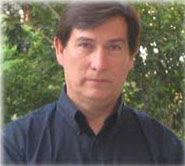3 U.S. Soldiers Die in Attack at a Base in Southern Iraq
By TIMOTHY WILLIAMS
Published: July 17, 2009
BAGHDAD — Three American soldiers were killed after insurgents fired mortar rounds into a United States military base in southern Iraq, an area of the country that has been largely free of the violence that continues to plague the northern part of the country.
The attack occurred Thursday evening, but the American military did not report it until Friday. The identities of the soldiers have not yet been released.
Though American combat forces withdrew from Iraq’s cities on June 30, thousands of troops remain stationed at bases outside urban areas.
The base struck by mortar rounds on Thursday, Contingency Operating Base Basra, is about 20 miles outside Basra, Iraq’s second largest city.
Basra Province, which lies at the heart of Iraq’s oil industry, was controlled by British troops until this spring, when they withdrew and turned over their bases to American soldiers.
Southern Iraq has been perhaps the most peaceful part of the country for the past year and a half, after Iraqi Army troops carried out a military campaign against Shiite militias there in the spring of 2008.
On Friday, the house of Bahjat Sada’a Khwam, an Awakening Council leader in the western city of Falluja, was bombed. Two children were killed, and Mr. Khwam and 10 family members were badly wounded, Iraqi security officials said.
Awakening Councils are neighborhood-based groups of Sunnis, many of them former insurgents, who are now paid by the Iraqi government. They are credited, along with the increase in American troops, with helping to diminish violence in Iraq.
Their leaders are often targets of Al Qaeda in Mesopotamia, a homegrown extremist group believed by American intelligence to have foreign leadership. Al Qaeda regards Awakening Council members as traitors.
Also on Friday, six separate attacks — three car bombs and three improvised explosive devices — killed one Shiite pilgrim and wounded 40 others in Baghdad districts, according to Iraqi security forces.
But in the neighborhood of Adhamiya, there was a glimmer of hope as thousands of Shiite pilgrims walked peacefully through what was once a stronghold of Al Qaeda in Mesopotamia and other Sunni extremist groups.
The pilgrims were taking part in the annual commemoration of the death of the eighth-century Imam Musa al-Kadhim by visiting the gold-domed shrine in Kadhimiya, the Shiite neighborhood just across the Tigris River.
Since Iraq’s sectarian warfare began in 2006, the Shiite pilgrims have generally avoided walking through Adhamiya to the shrine out of fear that they would be killed. The alternative route added more than two hours to the journey, often undertaken in sweltering heat and lasting several days.
But this year, the Iraqi Army closed Ras Hawash Street, Adhamiya’s main road, to vehicle traffic so that the pilgrims could walk through the district without fear of car bombs.
Many of the Sunni residents of the neighborhood greeted the pilgrims with cups of cold water or pitched tents for them to rest out of the hot sun.
“The Safina people welcome the pilgrims of Imam Kadhim,” read one large banner, referring to a neighborhood where, two years ago, Shiites faced death had they been stopped at a Sunni extremists’ checkpoint.
“No one would have believed this would be happening,” said Omar Nazhat, 35, who was melting blocks of ice in a large bucket to make cold water for passers-by. “People have started to heal. People want to live their lives without violence. They just want to live. They don’t want sectarian warfare.”
Tariq Abas, 57, a Shiite pilgrim who was walking the 10 miles from his home to the shrine, said that Friday was his first time in Adhamiya since 2005. That year some 1,000 Shiite pilgrims walking to the shrine on a bridge connecting Adhamiya and Kadhimiya died after being trampled or jumping into the Tigris River when a rumor spread that a suicide bomber was among them.
“It’s a very beautiful feeling,” Mr. Abas said about being welcomed by Sunnis. “It makes me feel proud. I’m proud of myself and I’m proud of the people of this area.”
Amir A. al-Obeidi, Mohammed Hussein and an Iraqi employee of The New York Times contributed reporting.
viernes, 17 de julio de 2009
3 U.S. Soldiers Die in Attack at a Base in Southern Iraq
Etiquetas:
20 20 abc,
20/20,
3 for hope,
burns triplets,
three for hope foundation
Suscribirse a:
Enviar comentarios (Atom)

No hay comentarios:
Publicar un comentario